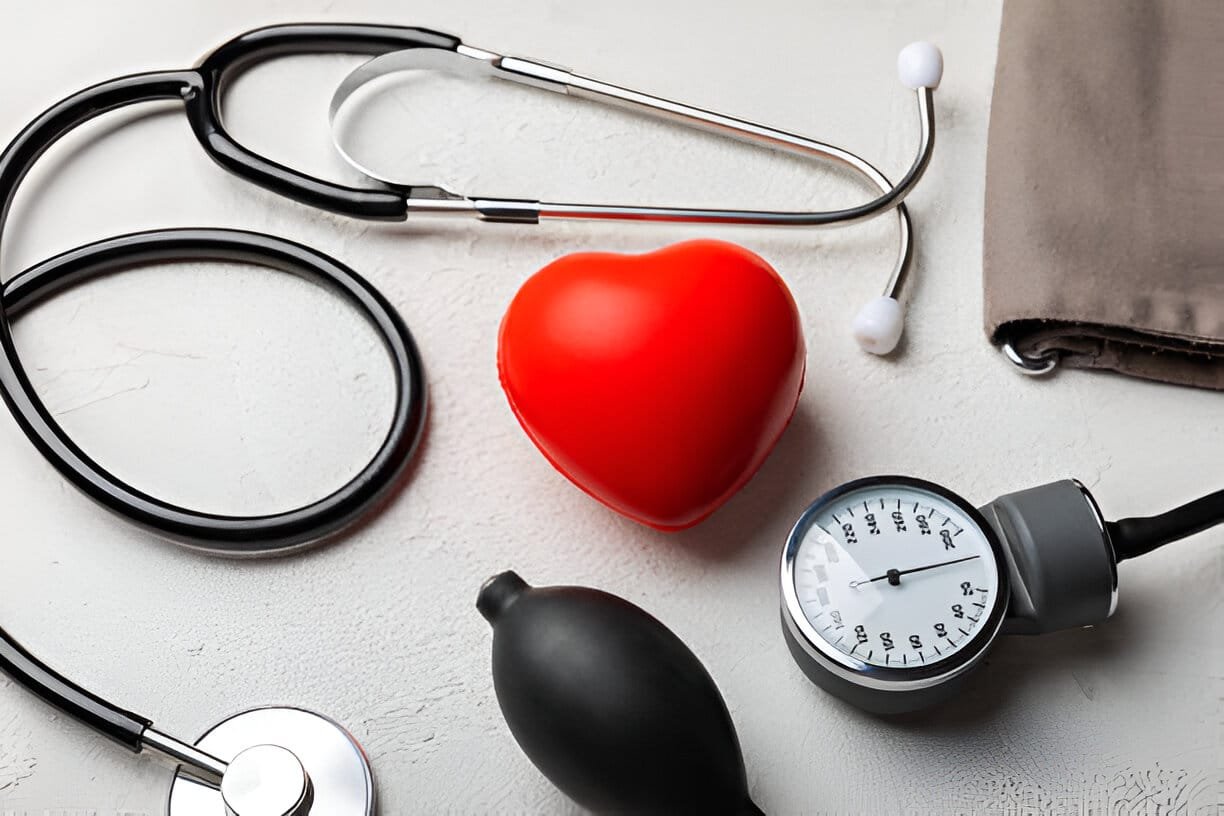Cardiac Care, Lifestyle Changes

High blood pressure, or hypertension, is one of the most widely known but least acknowledged health conditions across the globe. Commonly referred to as the “silent killer,” it causes bodily impairment gradually with few or no obvious indications.
With modern-day stressors like sedentary lifestyles and eating habits, hypertension is increasingly becoming a growing concern among all age groups. Indeed, knowing about its causes, types, signs, and management can assist one in maintaining long-term health. Let’s explore the details of hypertension and learn how you can control your blood pressure.
Hypertension refers to the sustained elevation of blood pressure levels, where the force of blood against artery walls remains higher than normal for extended periods. This condition can lead to severe complications, including heart disease, stroke, and kidney damage. A blood pressure reading of 140/90 mmHg or higher typically signals hypertension. However, even slightly elevated levels can gradually harm your body over time.
Blood pressure is measured using two numbers:
When these values exceed the normal BP range (less than 120/80 mmHg), it is essential to take proactive measures to manage your health.
There are various reasons why blood pressure levels might increase, including genetics, lifestyle factors, and even temporary stress. Factors like smoking, alcohol consumption, and a lack of physical activity often contribute to elevated blood pressure levels. Understanding the root causes helps you address hypertension more effectively.
Hypertension is broadly categorised into two types:
This type develops gradually over many years and does not have an identifiable cause. It is influenced by genetic predisposition and lifestyle factors like diet and exercise.
Caused by underlying conditions, the most common causes of hypertension are kidney disease, hormonal disorders, and medication side effects. Little or no secondary hypertension treatment occurs as opposed to primary hypertension; treatment will result from diagnosis and management of the underlying cause.
There are many factors capable of causing hypertension. Some of the most common causes of hypertension are:
Young individuals particularly need to know what the causes of high blood pressure are in young adults. Awareness of these high-risk categories early may allow one to implement preventive measures against high blood pressure.

Hypertension is often asymptomatic, earning its nickname, the “silent killer.” However, in severe cases, the following symptoms may occur:
Understanding high blood pressure symptoms and recognising them early can prevent severe health consequences. For women, knowing what are the symptoms of high blood pressure in a woman is critical, as symptoms may sometimes overlap with hormonal changes or other conditions.
Blood pressure readings are a critical component of hypertension management. Here’s how to interpret a reading:
Hypertension Stage 1: Systolic blood pressure between 130-139 mmHg or diastolic blood pressure between 80-89 mmHg
Hypertension Stage 2: Systolic blood pressure of 140 mmHg or higher or diastolic blood pressure of 90 mmHg or higher
Normal BP Range: Less than 120/80 mmHg
Elevated BP: Systolic pressure between 120-129 mmHg and diastolic pressure less than 80 mmHg
Very High Blood Pressure Reading: Often a medical emergency requiring immediate attention
Simple tools such as home blood pressure monitors can help track changes over time.
If you suspect high blood pressure, seek medical attention. Hypertension diagnosis typically involves multiple readings over time to confirm consistent elevation. The doctor may also ask for more tests, such as:
The chances of complications are greatly minimised when diagnosed in time. Regular visits to a physician for check-ups are recommended.
Managing hypertension is a mix of a healthy lifestyle along with proper medication. Here’s how to reduce high blood pressure effectively:
Where lifestyle modifications do not suffice, medications are very important. Some of the common ones include:
In some cases, knowing how to reduce blood pressure within 3 minutes using relaxation techniques, such as deep breathing or using home remedies, could help. Yet, they would not replace long-term treatment.
Undiagnosed high blood pressure is often a precursor to several serious health complications, including:
Understanding hypertension’s complications is important because it urges early intervention and continuous management.
Prevention, as the saying goes, is better than treatment. Below are practical ways to lower the risk:
Applying these precautions will help minimise the risk of hypertension and improve wellbeing.
High blood pressure is a serious condition that needs attention, but it can also be managed very effectively with the right knowledge and care. By understanding its causes, identifying its symptoms, and adhering to lifestyle changes, individuals can substantially lessen the risk of ensuing complications.
At Atrius Cardiac Care, your heart health is our priority. If you’re looking to monitor your blood pressure or explore treatment options, our expert team is here to guide you every step of the way. Schedule your consultation today!